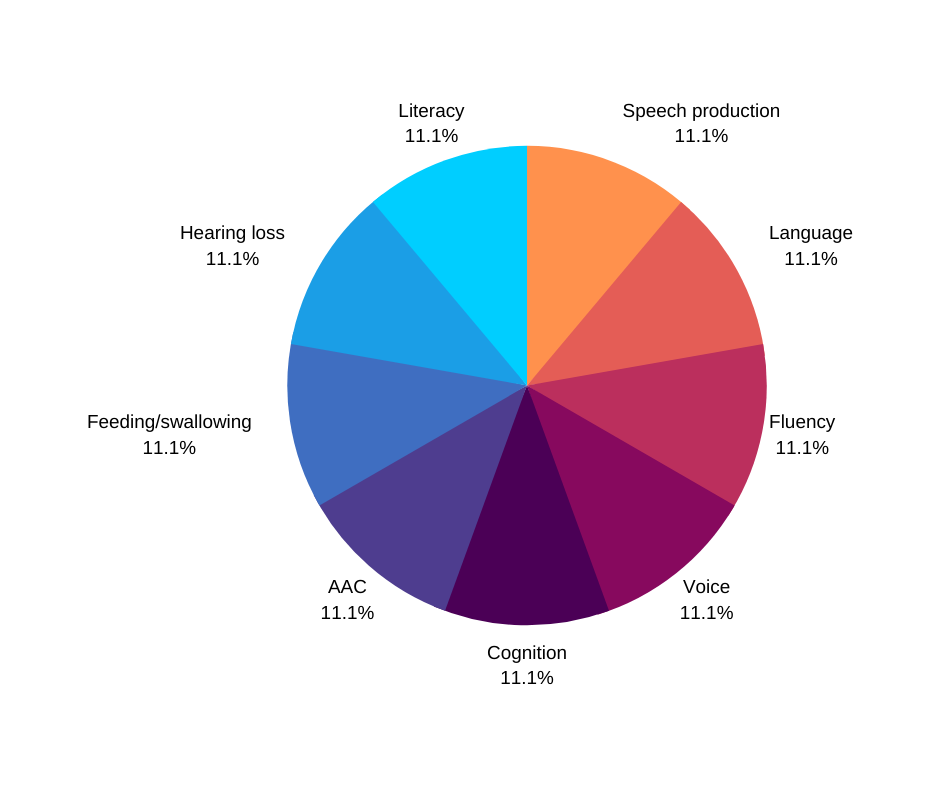The Benefits of Working with a Specialist in Pediatric Speech-Language Therapy
Specialists vs. Generalists
Generalists know a little about a lot. They need to keep their knowledge up-to-date in many skill areas.
I’m going to step away from speech-language pathology for a minute and tell you about my migraines (this relates, I promise). I have suffered from chronic migraines for the past two years.
When they first started, I went to my primary care physician. He wrote me a prescription for migraine medication, but it didn’t work. When I went back to him, he said there was nothing else I could try.
After a year of chronic migraines that weren’t responding to medication, a friend said I should go see a neurologist about my migraines. “Why,” I asked, “would I go to a neurologist about my migraines when my primary care physician can give me medication for them?” And she reminded me…
A primary care physician is a generalist; they know a little about a lot of different ailments. A neurologist is a specialist; they know a lot about neurology, but probably couldn’t help me with most of the things that primary care physicians treat every day. I found a neurologist who specializes in migraines. And wouldn’t you know it, he worked with me to find a treatment that has all but cured my migraines. I am so glad I found a specialist!
Specialists in Speech-Language Pathology
So now, back to speech-language pathology…
Specialists know a lot about a little. We have deep knowledge about a fewer number of topics.
Did you know that the field of speech-language pathology has nine skill areas?! In order to become certified as a speech-language pathologist (SLP), an SLP needs a master’s degree with study in all nine areas. We get training in working with adults and children across the nine skill areas. When an SLP graduates with their master’s degree, they can choose to practice in any (or all!) of the nine areas with any population (e.g., children or adults). Some SLPs remain generalists. They work with adults and children who have any number of diagnoses. Generalists tend to know a little about a lot.
Some SLPs, like me, choose to specialize by focusing on a niche area of speech-language therapy. SLPs who specialize know a lot about a little. We have in-depth knowledge about fewer topics. As a specialist, I am more limited in the kind of speech-language therapy I offer, but I know A LOT about autism, pediatric speech production, and pediatric language. By specializing in these topics and working only with children, I have been able to learn even more about relevant topics, like augmentative and alternative communication (AAC), early intervention, childhood apraxia of speech, and bilingualism. As a specialist, it is easier for me to stay up-to-date with the latest research to ensure that all of my patients receive the highest-quality care.
It might be a good idea to look for a pediatric speech-language therapy specialist if…
You have concerns about your child’s ability to communicate but your child’s doctor or another specialist recommended that you “wait and see” if it improves.
You aren’t seeing progress or your child’s progress is slow.
Your child was recently diagnosed with a medical cause for their communication difficulties, such as autism, cerebral palsy, or a genetic syndrome.
Your child has a complex diagnosis, a rare disease, or difficulties in multiple areas.
A specialist might also be able to help your child make faster progress, which overall would mean less money and less time invested in speech-language therapy.
Pediatric speech-language pathologist sits on floor with two-year-old girl
When looking for a speech-language pathologist, it’s a good idea to search out a specialist who has expertise in the specific area in which your child needs support. This will help ensure that your child makes progress as quickly as possible and minimize the time and financial commitments of speech-language therapy.
Ready to work with a specialist in pediatric communication? I specialize in early intervention, autism, speech production and childhood apraxia of speech, augmentative and alternative communication (AAC), and bilingualism. Schedule an appointment or free consultation today!
References
Consumer Reports (2016, October 3). Four situations where you really should see a specialist. Washington Post. https://www.washingtonpost.com/national/health-science/four-situations-where-you-really-should-see-a-specialist/2016/10/03/d9fd3f54-37c5-11e6-a254-2b336e293a3c_story.html




